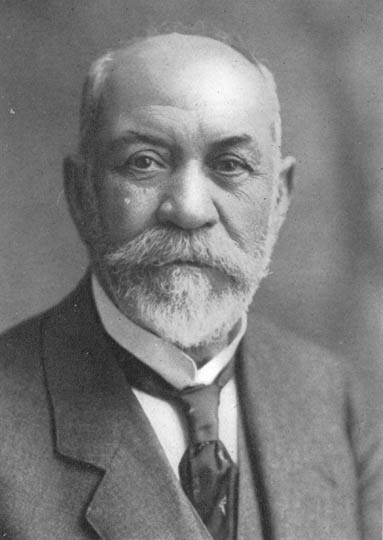Stojan Protić
| Stojan Protić | |
|---|---|
 |
|
| Prime Minister of Yugoslavia | |
|
In office 19 February 1920 – 16 May 1920 |
|
| Monarch | Peter I |
| Preceded by | Ljubomir Davidović |
| Succeeded by | Milenko Vesnić |
|
In office 22 December 1918 – 16 August 1919 |
|
| Monarch | Peter I |
| Preceded by | Nikola Pašić |
| Succeeded by | Ljubomir Davidović |
| Personal details | |
| Born |
28 January 1857 Kruševac, Principality of Serbia |
| Died | 28 October 1923 (aged 66) Belgrade, Kingdom of Serbs, Croats and Slovenes |
| Political party | People's Radical Party |
Stojan Protić (Serbian Cyrillic: Стојан Протић; 28 January 1857–28 October 1923) was a Serbian statesman and writer. He served as the Prime Minister of the Kingdom of Serbs, Croats and Slovenes between 1918 and 1919, and again in 1920, later called Yugoslavia.
Stojan M. Protić was born in Kruševac. His great-great-grandfather (čukundeda), Toma Dečanac, moved from the village of Dečani with his wife and two sons, to Kruševac.
Having studied history and philosophy in Belgrade's Grande école (Velika škola), Protić briefly worked in government service before dedicating himself to journalism and becoming editor of Samouprava ("Autonomy"), the official daily newspaper of the People's Radical Party. In 1884 he became editor of another paper, Odjek ("Echo"), and advocated changing Serbia's constitution. He ran in the 1887 elections and was elected to Parliament. As secretary of the Constitutional committee in 1888 Protić participated in drafting the Serbian Constitution, perhaps one of the most liberal constitutions in the late nineteenth-century Europe.
He became an influential ideologist of the People's Radical Party and a talented journalist. He continued to write numerous articles for several political magazines while in office.
Protić was often elected as deputy of the People's Radical Party in the Serbian Parliament: 1887, 1897, 1901, 1903, 1905, 1906, 1908, 1912. Known as an ardent polemist and advocate of British-type democracy, he served as a deputy in the first Yugoslav parliament (1920) as well.
He was Minister of Interior in various governments in Serbia after 1903 (Administrations of Jovan Avakumović, Sava Grujić, Nikola Pašić), as well as the Minister of Finance (1912). As Minister of the Interior at the outbreak of World War I, he worded the Serbian reply to the Austro-Hungarian Ultimatum during the July Crisis. He supported the Corfu Declaration (1917), opposed the Geneva Declaration (November 9, 1918), and sought to revise the Vidovdan Constitution. Protić entered into a dispute over the model of unification with Nikola Pašić at the end of the Great War. He actively supported civilian over military government and came into conflict with leading members of the "Black Hand" as a result. Also, against the centralist tendencies of his party, he advocated for a decentralized unified state with relative autonomy for Serbs, Croats, and Slovenes. In December 1918 Protić was appointed Prime Minister of the Kingdom of Serbs, Croats and Slovenes by Prince-Regent Aleksandar Karađorđević. His government, unfortunately, lasted from 20 December 1918 to 16 August 1919. He was Prime Minister once more from 19 February to 17 May 1920. In 1923, after leaving the Radicals, led by Pašić, he failed to organize a new party. After losing his parliamentary seat in his traditional constituency in Kruševac, Protić quit politics.
...
Wikipedia
